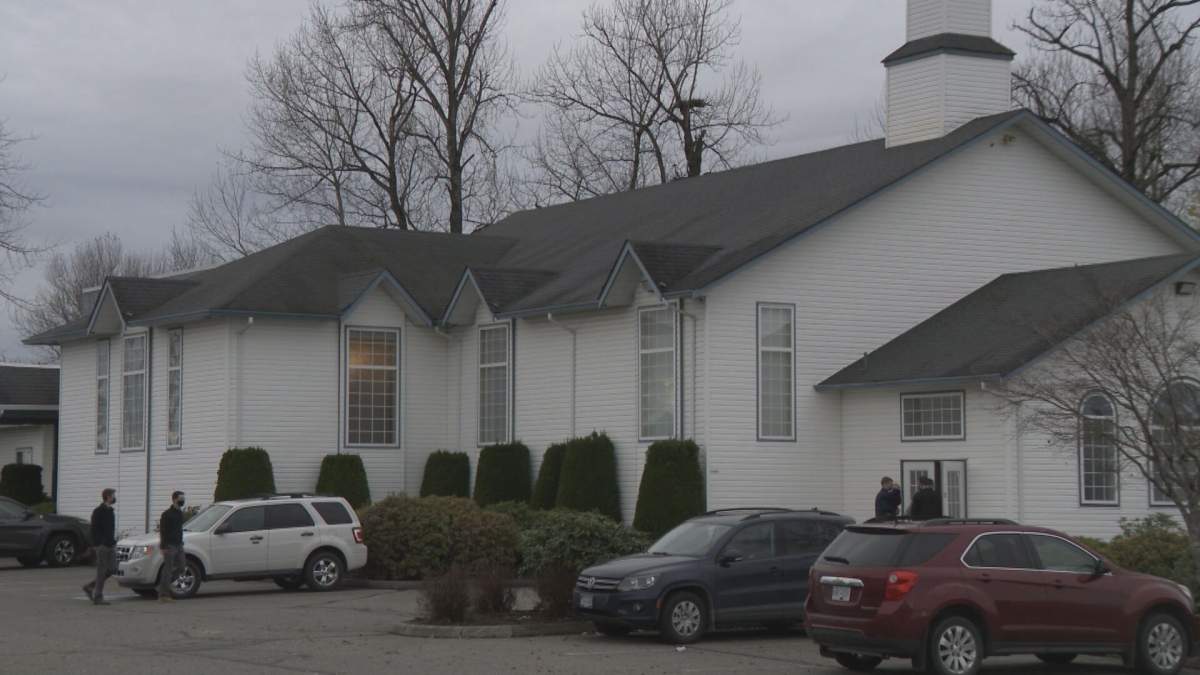A British Columbia Supreme Court judge has reserved his decision on a request from three churches to throw out provincial health orders that prevent them from holding in-person services.

Chief Justice Christopher Hinkson said Friday he doesn’t want to delay unnecessarily and he appreciates the urgency of the matter from the petitioners’ point of view, but he must give the case careful thought.

“You’ve presented me with very difficult issues to resolve and I will take the time necessary to try and resolve those issues fairly.”
Hinkson gave no date on when he would release his decision.
Jacqueline Hughes, a lawyer for B.C.’s attorney general, told the court the orders by provincial health officer Dr. Bonnie Henry do not single out or ban all in-person religious services and Henry has invited exemption requests.
The petitioners include the Riverside Calvary Chapel in Langley, Immanuel Covenant Reformed Church in Abbotsford and the Free Reformed Church of Chilliwack.
Hughes said the churches are now permitted to hold in-person services of up to 25 people, outdoors and with safety measures in place, through a “variance” to Henry’s orders granted late last month.

Get weekly health news
Individual worship and drive-in events are also permitted under the orders, subject to conditions, she said, while weddings, funerals and baptisms may include no more than 10 guests.
Henry has the statutory powers during an emergency to issue orders she reasonably believes are necessary to prevent and mitigate further harm from a health hazard, including restricting entry to a place, said Hughes.
The province’s top doctor has made efforts to consult faith leaders while weighing their charter rights against data about COVID-19 cases in B.C. and explaining her reasoning in public briefings and in writing, she said.

Paul Jaffe, legal counsel for the petitioners, has argued Henry’s orders reflect a value judgment. On Friday, he said his clients have been subjected to discriminatory treatment compared with other groups.
Orthodox Jewish synagogues were granted variances to hold indoor services on the Sabbath around the time Henry and the attorney general sought an injunction to stop his clients from worshipping in person, Jaffe said.
Hinkson dismissed the province’s injunction application last month, saying the provincial health officer has means under the Public Health Act to enforce the rules without a court order.
Jaffe told the court on Friday there has been no change in the degree to which Henry’s orders arbitrarily infringe on his clients’ charter right to freedom of religion from the time they were made last November to now.
“All the Crown has been able to show you are the opinions of Dr. Henry,” he said. “But opinions aren’t evidence. You need cogent, persuasive evidence to justify those opinions and there simply isn’t any.”
He told the court earlier this week that his clients have adopted safety measures similar to those approved by the provincial health officer in places that remain open.
Jaffe works with the Justice Centre for Constitutional Freedoms, a Calgary-based legal advocacy group that’s also asking the court to dismiss tickets of up to $2,300 each for alleged violations of the public health orders.
Hughes told the court on Friday “there’s no absolute rule that constitutionally protected interests must be preferred to those that are just pressing and substantial” in matters such as the petition at hand.
The only requirements, she said, are that any balance struck is reasonable, that “sincere religious practice” is accommodated where possible, and that religious and non-religious beliefs are treated neutrally.
“We say Dr. Henry understood these requirements and applied them to best of her ability,” Hughes told Hinkson.
Henry’s mandate to protect public health is a balancing exercise, she said, and “charter rights do not trump the public health mandate that she has and is continuing to exercise over the course of this pandemic.”








Comments